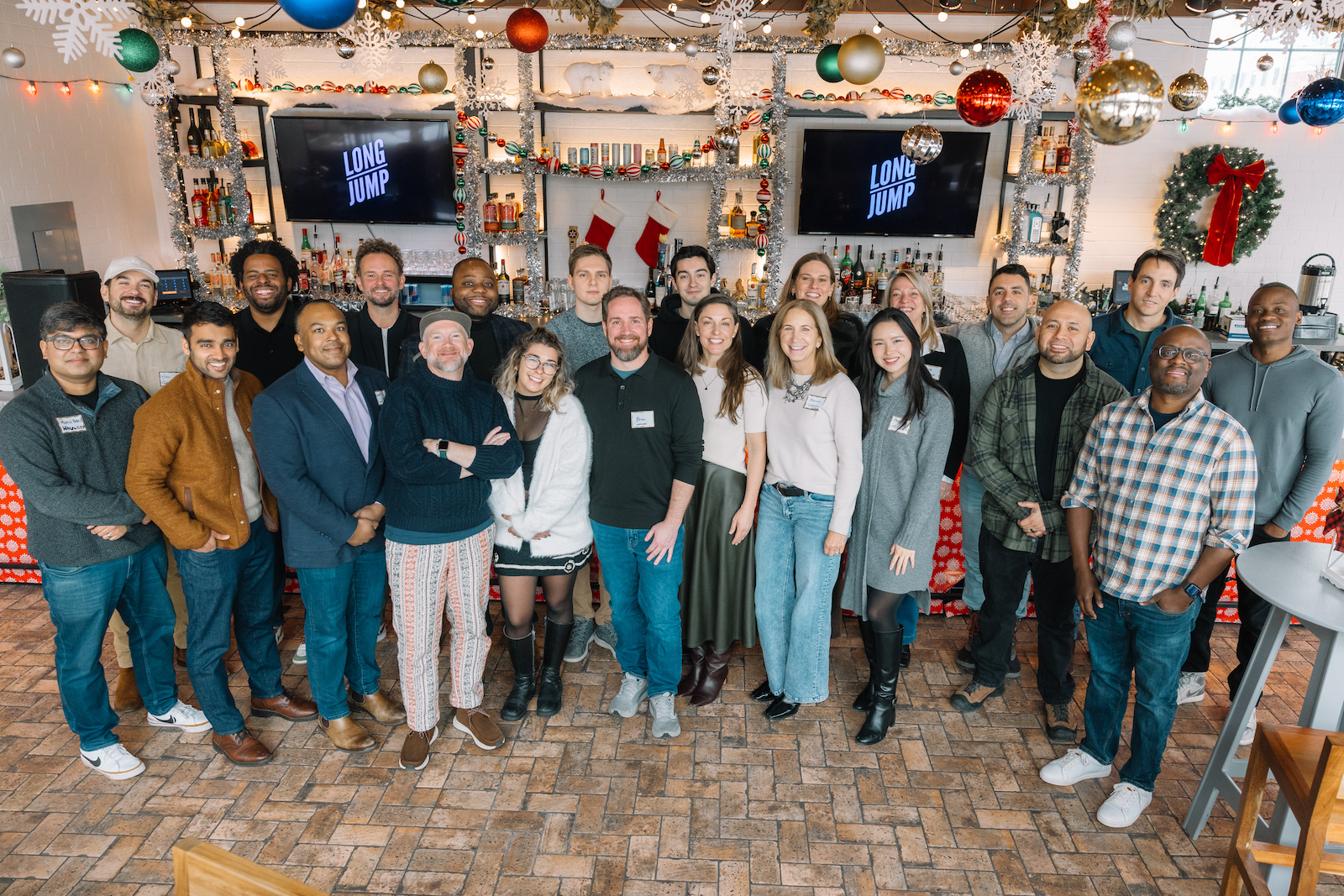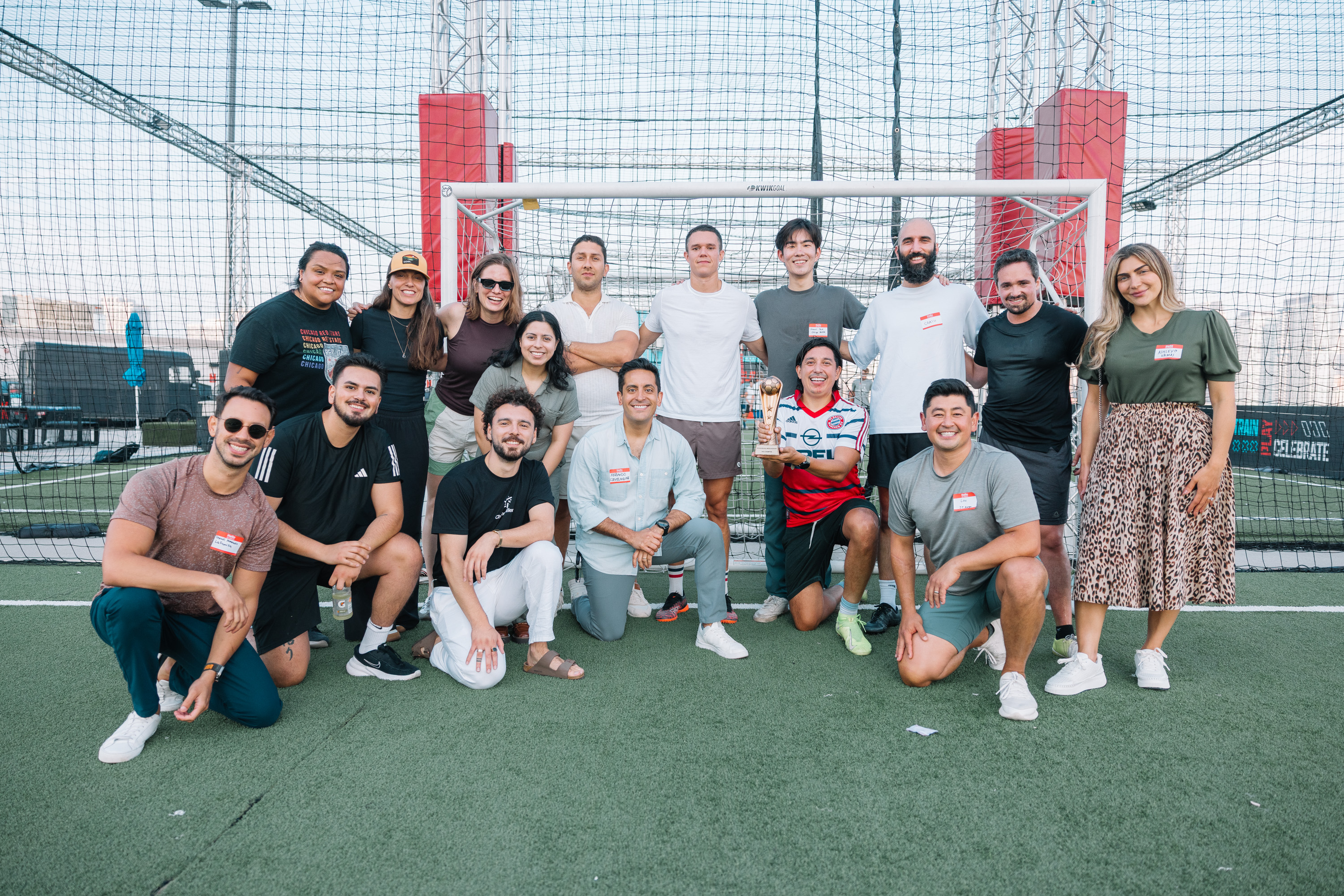Don't Miss a Step. Subscribe to our Newsletter
Tim Grace is Managing Director at Techstars Columbus Powered by The Ohio State University. Applications for the fall cohort of Techstars Columbus are open until May 22.
In 2016, following stints in startups including Cars.com and Trunk Club, where he was the first product hire and helped grow the company until their eventual exit to Nordstrom, Tim Grace found himself with some time on his hands for the first time in his career. That’s when his friend and former boss, Jeff Judge, gave him a call. Jeff’s new company, Bright, had just joined Techstars Chicago; Tim signed on to join the team. While Bright eventually wound down, Tim credits that experience and the exposure it gave him within Techstars with changing his life.
Today, Tim finds himself back at home within the prestigious Techstars accelerator - this time starting a new program from scratch out of Columbus, Ohio. Techstars is reshaping itself in a new era, an exciting opportunity for someone like Tim, who thrives in the building stages. In this feature, we talked with Tim, where we:
- Gained insight into how Techstars can provide founders with a network that will support them in and beyond their businesses
- What Techstars looks for when selecting teams
- Selecting the right program and time to apply for an accelerator
- How you should prepare before you even start your application to an accelerator, including one thing Tim says the majority of applicants neglect
A Life-Changing Network
Tim grew up on a corn and soybean farm in central Illinois, far removed from the startup scene that would become his future. Moving to Chicago 23 years ago, he joined the city’s emerging tech sector in product management roles with startups of varying sizes, while building a solid community of operators like him.

When Tim joined Jeff at Bright and entered the Techstars Chicago program in 2016, he saw that network morph. “The founder community is very different [than the operator community]. The number one thing I got from Techstars was the people - the relationships that were built.” Tim recalls a few of the relationships that proved to be pivotal in the years to come, “I met Brian [Luerssen] (Techstars co-Managing Director at the time, co-founder at Draftbit and LongJump). I got to know Troy [Henikoff] (Techstars co-MD and GP at MATH Venture Partners) and my cohortmates, Rebecca [Sholiton Kahnweiler] (LongJump Managing Partner), her co-founder, Nate Cooper (Barrel Ventures founder), and John Renaldi (Founder of Jiobit), in particular.”
Tim credits this group of founders for many of the next steps he would take in his career. He eventually joined Brian as co-founder and COO of Draftbit and they also launched LongJump together. Most of LongJump’s founding General Partners, including Ablorde Ashigbi, Garry Cooper, Rebecca Sholiton Kahnweiler, and Kristen Sonday came out of late-2010s Techstars cohorts themselves. Many of the fund’s initial LPs were also attached to the Techstars Chicago program in one way or another.
Building Techstars Columbus
When Techstars came calling in mid-2023 with the opportunity to launch a new program out of the Ohio State University - thanks to a transformative financial gift from alumni Ratmir Timashev - Tim found himself with a unique chance to shape his own Techstars cohort from the beginning. He was given the mandate to supercharge the university and Columbus’s innovation ecosystem.
Starting with his program thesis, Tim’s main marching orders were to focus on software and something that could leverage the program’s relationship with Ohio State. Surrounded with a leading health care system, world-renowned researchers in climate, and more, he decided to focus on companies solving for some of the world’s most difficult problems, ”Where I found the most conviction is this intersection of things that are of paramount critical importance in our world today and where Ohio State can uniquely help founders that are building against large existential problems that we're faced as a society.”
His first cohort includes companies like Blomso, which creates efficiencies in agriculture while helping farmers reduce their use of fertilizers and Cariqa, a platform that is solving a fragmented EV charging network in the European Union and creating cost savings for drivers and energy suppliers through a more efficient pricing model and partnerships.
Reflecting on what he’s learned being on the other side of the program, Tim says he’s been overwhelmed by the positivity and energy of the Techstars community, particularly the work of his small team local to Columbus. People in and out of Techstars have rallied around his program as mentors, connectors, and partners. Alumni have flown to Columbus to speak to his founders, the organization itself has provided valuable introductions for the cohort, and he’s relied on his fellow program teams for support as he’s sourced companies and structured his programming.
Recommendations for Founders Applying to Techstars
Having spent time as an operator, founder, VC, and Techstars Managing Director running his own accelerator program, Tim offers a well-rounded perspective on what founders should consider when thinking about applying to an accelerator and how they can best position themselves for success.
- Seek out programs that are additive to where you are at in the building process. Some accelerators may not offer investment but may be very specific in certain domains where a founder can make valuable commercial relationships in difficult-to-penetrate industries (think healthcare, entertainment, etc.). Others, Techstars being an example, may focus heavily on the community of founders that they curate, helping provide vital peer support in the often lonely early stages. If you are optimizing for cash and using the program as a platform for raising the floor of your eventual fundraise, programs like YCombinator may be your target.
- Think about time and timing. Many accelerators will require hours of your attention each week, whether being workshops on things like financial models or pitch prep, meeting with mentors and investors, or preparing for key milestones like Demo Day. Tim encourages founders to recognize that they owe it to themselves to carve out the time and take full advantage of the experience because most of the value for that program is going to come from active participation. He also recommends that founders think intentionally about how programs can unlock goals at the right time - for instance, timing a fundraise around participation in a Techstars program that can help you design the process and structure for your raise, give you feedback and support, and help you identify investor targets.
- Team and momentum are key considerations for selection. Techstars is known for being hyper-focused on team in their selection criteria. For Tim, this means finding those individuals with unique perspectives and skills for the problems they are solving, superpowers when it comes to building particular parts of the business, and people he genuinely thinks will be a meaningful addition to the overall cohort.
Talking about solo founders, Tim acknowledged that an accelerator experience can be hard to handle alone due to the demands on time and blind spots that all individuals have within their companies. For solo founders considering a program, he recommends being vulnerable and honest about your limitations and articulate very clearly how you are dealing with those obstacles and the plans you have to fill any gaps in your expertise.
Tim also places a huge emphasis on momentum in his selection process at Techstars Columbus. At the beginning of the program, Tim gives a talk on the concept of momentum: what it is, the difference of working in the business versus on the business, and key performance indicators. He works with his cohort to set goals and create plans to execute on the momentum they want to create during their program. Founders can shine in consideration interviews by demonstrating an understanding of the momentum they need to generate within their particular industry and stage and provide examples of their previous ability to execute on goals. - Do your homework. When asked what most applicants miss in their submissions, Tim immediately points to research of the program and the nuances of its offering and management team. Most accelerators will put out content about the program, hold office hours with the team, and offer opportunities to connect with alumni to learn about their experiences in the program. Tim even encourages prospective applicants to backchannel - reach out to connections (or even cold contact) program graduates. Many founders will put their program in LinkedIn headers (ex: a Techstars NYC search on LinkedIn yields dozens of pages of results), taking a lot of the work out of your research. Time spent understanding these programs, what their staff are hoping to see in candidates (like Tim’s specificity around momentum), and their unique value offerings will help you tailor your application and prepare for selection interviews.
Ready to Take The leAp?
Community
Contact
© 2025 | Site Built By PNW




.png)